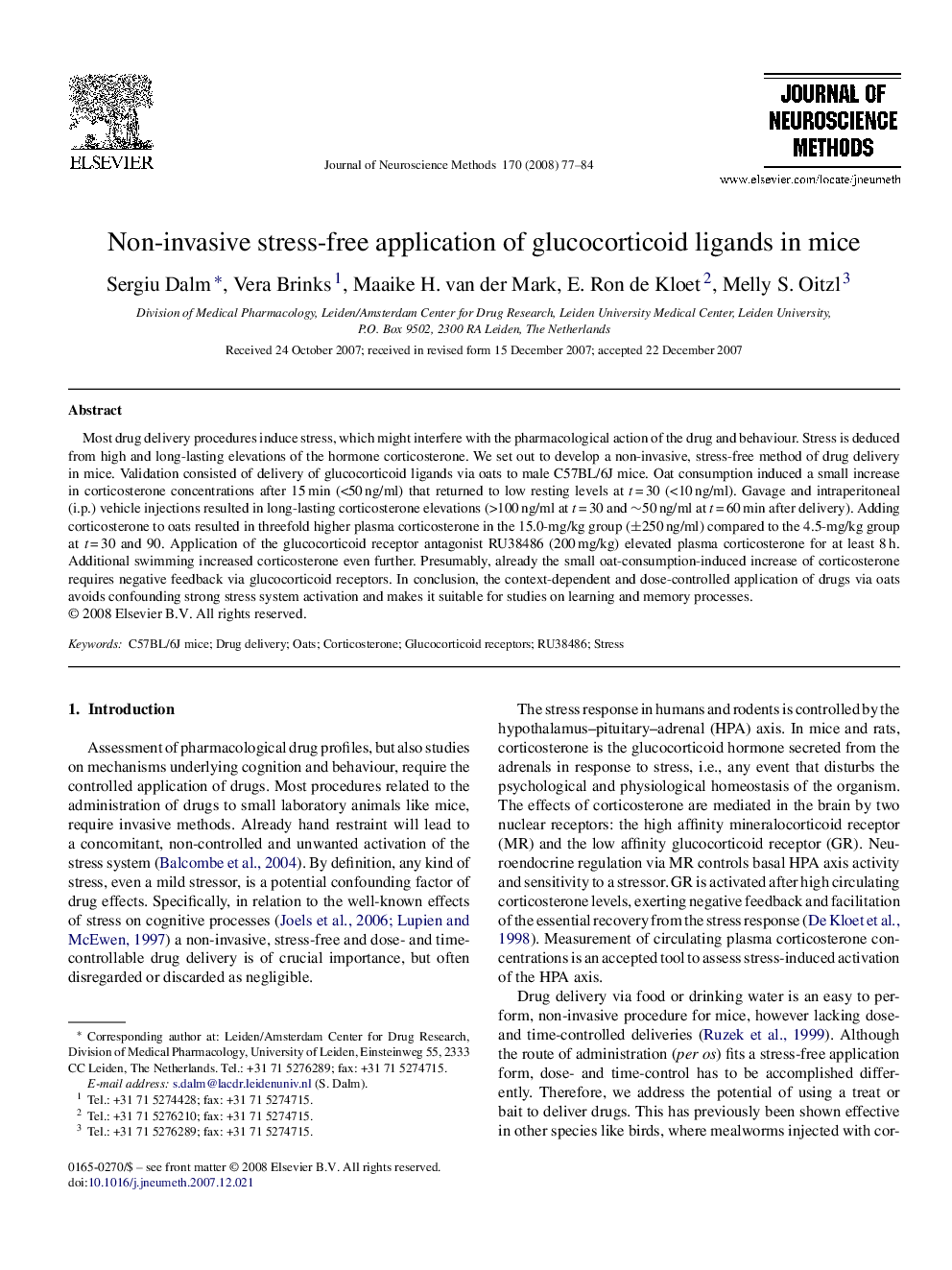| Article ID | Journal | Published Year | Pages | File Type |
|---|---|---|---|---|
| 4336372 | Journal of Neuroscience Methods | 2008 | 8 Pages |
Most drug delivery procedures induce stress, which might interfere with the pharmacological action of the drug and behaviour. Stress is deduced from high and long-lasting elevations of the hormone corticosterone. We set out to develop a non-invasive, stress-free method of drug delivery in mice. Validation consisted of delivery of glucocorticoid ligands via oats to male C57BL/6J mice. Oat consumption induced a small increase in corticosterone concentrations after 15 min (<50 ng/ml) that returned to low resting levels at t = 30 (<10 ng/ml). Gavage and intraperitoneal (i.p.) vehicle injections resulted in long-lasting corticosterone elevations (>100 ng/ml at t = 30 and ∼50 ng/ml at t = 60 min after delivery). Adding corticosterone to oats resulted in threefold higher plasma corticosterone in the 15.0-mg/kg group (±250 ng/ml) compared to the 4.5-mg/kg group at t = 30 and 90. Application of the glucocorticoid receptor antagonist RU38486 (200 mg/kg) elevated plasma corticosterone for at least 8 h. Additional swimming increased corticosterone even further. Presumably, already the small oat-consumption-induced increase of corticosterone requires negative feedback via glucocorticoid receptors. In conclusion, the context-dependent and dose-controlled application of drugs via oats avoids confounding strong stress system activation and makes it suitable for studies on learning and memory processes.
